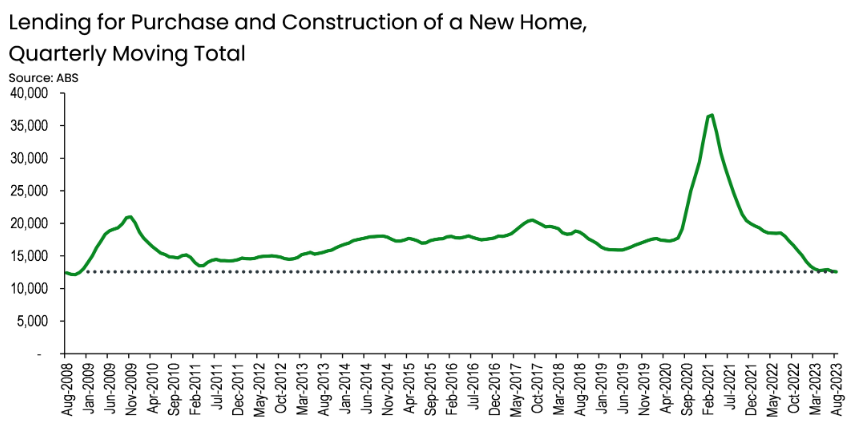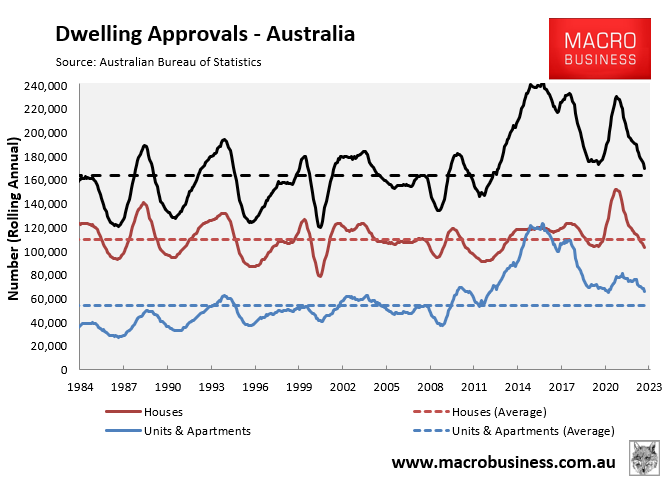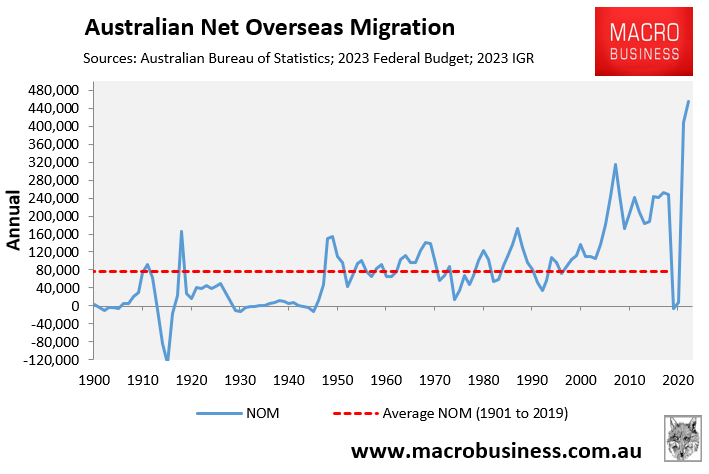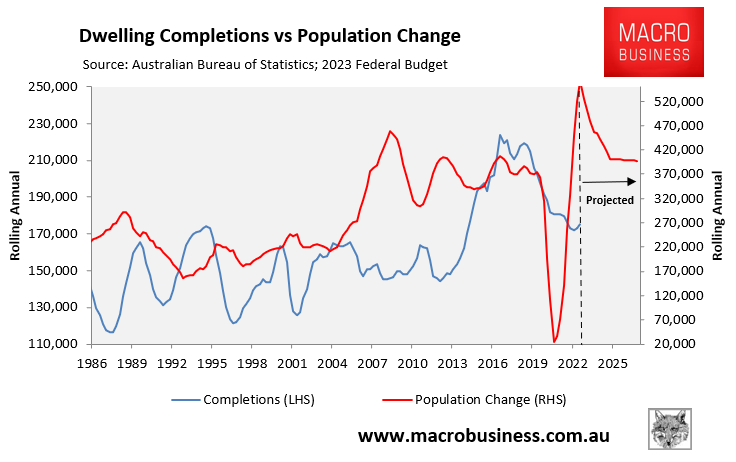The Australian Bureau of Statistics (ABS) released housing finance data on Tuesday, which revealed that the number of loans provided for the purchase or construction of new homes fell to their lowest level since the Global Financial Crisis in 2008:

“In the three months to August 2023 lending for the purchase or construction of a new homes was 30.3% lower than at the same quarter a year earlier”, noted HIA Senior Economist Tom Devitt.
“This decline in building activity is in contrast to the low level of unemployment and strong population growth”.
“The impact of the RBA’s tightening cycle is not expected to produce a trough in new house commencements until the second half of 2024″.
Separate ABS data released on Tuesday showed that housing approvals have fallen to a fresh decade low, indicating a future downturn in new home construction:

The above results come at the same time as the nation’s population grew by a record 563,200 in the year to March driven by unprecedented net overseas migration of 454,300:

As a result, the National Cabinet’s announcement that it will build 1.2 million homes over five years is clearly based on fantasy.
Only once has Australia built more than 220,000 houses in a single year (223,000 in 2017).
So, building 240,000 homes for five years in a row is a pipe dream in an environment of high material and financing costs and labour shortages.
In turn, Australia’s housing shortage will continue to worsen as population demand continues to run well ahead of housing supply:

The only realistic solution to Australia’s housing shortage is to lower net overseas migration to a level compatible with the nation’s ability to construct new housing and infrastructure, as well as its environmental carrying capacity (including water supplies).
The Albanese Government must stop making the problem worse by pursuing the most aggressive immigration program in the nation’s history.

